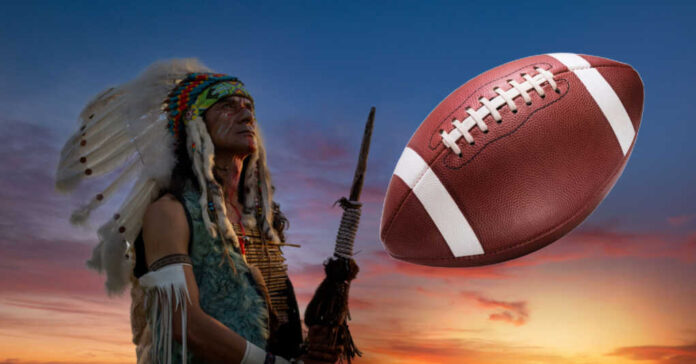
A Native American organization has issued a call for a national boycott of the Washington Commanders unless the NFL reverts to the Washington Redskins as the team’s name. In 2020, the football franchise announced the removal of “Redskins” from its name and, two years later, introduced the new name ‘Washington Commanders.’
The motivation for this change had been the mounting pressure from elements of cancel culture, which had intensified following the death of George Floyd. Critics argued that the term “redskins” was derogatory and offensive to Native Americans. They contended that it perpetuated derogatory stereotypes rooted in America’s history of violence against Indigenous people.
After 87 years of being known as “The Redskins,” the team eventually yielded to this pressure, adopting the name “Washington Commanders.” For advocates of the name change, like Suzan Harjo, a 76-year-old descendant of the Cheyenne and Muscogee tribes, this transition marked a substantial step forward. Harjo argued that using derogatory terms, slurs, and disparaging names was unacceptable.
She particularly highlighted the term “redskins,” which she referred to as the “r-word,” asserting that it was inextricably linked to harmful and racist attitudes that had resulted in emotional and physical violence against Native Americans. However, the historical origins of the term have sparked debates among linguists and historians. Some maintain that “redskin” did not begin as an insult, yet to many Native Americans, it symbolizes a gruesome chapter of their history involving the hunting and scalping of their ancestors for cash bounties.
Yet according to polls, 90% of Native Americans don’t find the term “redskin” offensive.
The Native American Guardians Association (NAGA) expressed its position in a letter to the leadership of the Washington ‘Commanders’ football team, formally requesting a return to the “Redskins” name. NAGA referenced the team’s long history and its ties with the Native American community dating back to its 1933 season when they were known as the Boston Redskins.
NAGA decried what it referred to as “cancel culture” affecting the Native American population, asserting that the NFL’s renaming of the team erased Native Americans’ vital role in American history, including their advisory roles to the Founding Fathers in creating the U.S. Constitution.
The group made two specific requests for revitalizing the team’s relationship with the American Indian community. First, they urged the team to revert to the name “The Redskins,” recognizing the nation’s original inhabitants. Second, they encouraged using the historic name and legacy to promote learning about America’s tribal history rather than erasing it.
NAGA aimed to highlight the significant role of the American Indian community in shaping the United States. They concluded the letter by underlining that in contemporary society, ignoring history and arbitrarily disregarding U.S. history and constitutional rights was unacceptable. They asserted that neglecting history could lead to its repetition.
The letter also carried a warning that should the situation necessitate it, NAGA would not hesitate to mobilize a national boycott akin to the one affecting Anheuser-Busch (Bud Light), which had suffered a substantial financial hit, losing $27 billion. They stressed that this would be achieved without resorting to violence or disruptions but through a collective approach, just like the boycott of Bud Light.
But the new ownership of the Washington Commanders football team has resisted calls to revert to the team’s former name despite the mounting pressure from some fans. An online petition advocating for the return to the Washington Redskins name has garnered over 130,000 signatures since it was introduced in June. The petition is on track to be one of Change.org’s most-signed petitions in the history of the organization.
The online petition, initiated by Eunice Davidson, highlights the example of other sports teams like the Kansas City Chiefs and the Chicago Blackhawks, which have retained their Native American-themed names while emphasizing the importance of honoring and respecting such names.
Cancel culture enthusiasts have a knack for getting upset and offended about things that most folks don’t really find upsetting or offensive. And when liberals get upset, they expect everyone else to be equally outraged, even if the people directly affected by “the offense” weren’t bothered in the first place.
Apparently, Native Americans weren’t even aware they should be offended. Never fear, the liberals are committed to defending Native American honor, whether the group wants them to or not.







